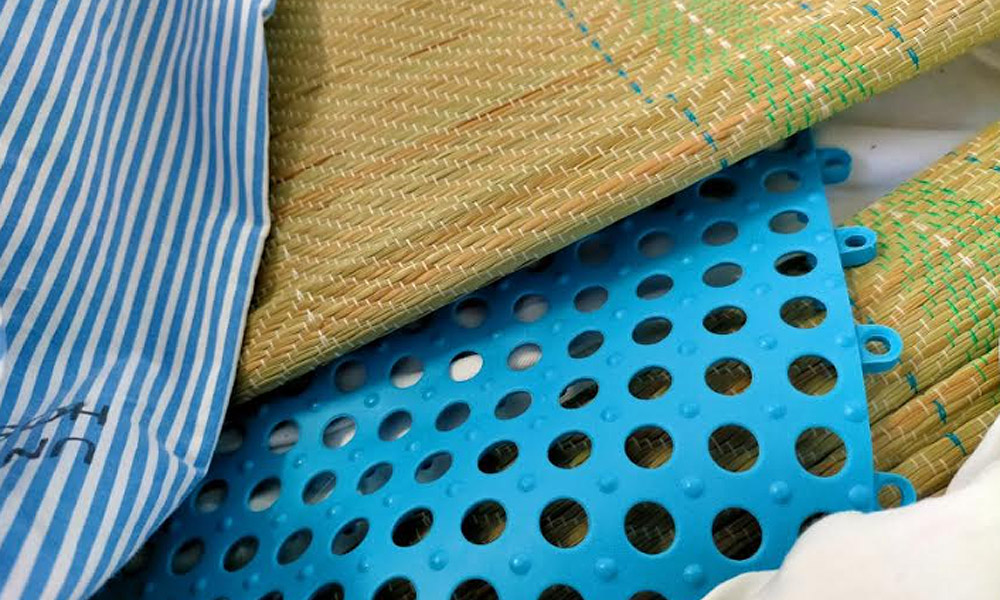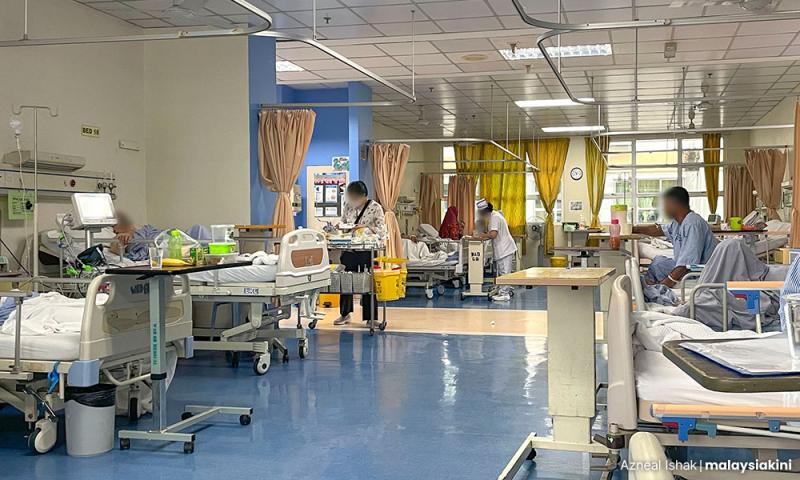LETTER | Ministry should address issues of nurses’ attitudes too
LETTER | Health Minister Dr Zaliha Mustafa has just tabled a white paper on improving the public health system. I hope she doesn't forget issues like managing some nurses' attitudes.
What about the PAS politician who complained of "tight" nurses’ uniforms? He should suggest ways to help poor patients rather than trying to score cheap political points.
There are many other problems in our public hospitals apart from so-called "tight" nurses’ uniforms.
After spending two weeks bedridden at a government hospital recently, I saw and felt these issues myself.
I had broken my leg and was put into an orthopaedic ward. Being largely immobile, after a few days, I started developing some bed sores on my buttocks.
I soon realised that I was lying on a mattress wrapped in PVC. Needless to say, this material did not ‘breathe’ and my buttocks were left ‘boiling’ with sweat, contributing to the sores.
Sure, the hospital wanted stain-proof mattresses, but these seemed terribly unsuitable for an orthopaedic ward where many patients were bed-bound due to their broken bones.
When I told doctors of my sores, they asked nurses to give me an inflatable ‘ripple mattress’. But the nurse told me, "Sorry, pam rosak (Sorry, the pump is broken)."
But honestly, there was no need for expensive ripple mattresses. A cheap RM90 two-inch thick rebonded foam mattress would have helped ventilation immensely for many patients.
My own solution was to ask friends to bring two grass mats. I also added some bathroom non-slip mats (with many holes). The combination helped ease airflow.

I had hoped that my cheap but effective innovation would inspire nurses to relieve the hot, sweltering backs of other suffering patients. But instead, I was scolded for this because it looks a bit messy and "nanti orang komplen (someone will complain)".
Poor nurses let down good doctors
The doctors who saw me, however, were excellent - polite and knowledgeable. The problem was a few nurses who seemed to enjoy giving sharp, cutting comments of no value other than to bully patients and exert their power. In other words, Little Napoleon nurses.
Being stuck in bed, I was at risk of blood clots, which could travel to the brain or lungs and cause serious damage. So, I was given blood-thinning drugs. I was also advised to drink more water, as dehydration thickens the blood. But this means more urine.
One particular nurse decided one day to take away one of my bedside urine bottles.
"Satu orang, satu botol saja (one person, one bottle only)," the nurse said.
This would force me to reduce my water intake and increase the risk of clots. Luckily, I later managed to ask another nurse to give me another urine bottle.
An orderly would come every morning to empty those bottles into a pail. But nobody washed or even rinsed them, so you can imagine the stink.
In general, several nurses did their work quietly without drama or sarcastic remarks, unlike a few others.
The nasty nurse also simply rearranged my stuff until many essentials were out of reach. One bag was put at the back of my bedside cabinet and it soon fell off. The nurse later bumped into the traction device pulling on my leg. Was this "accidental" or what?
Failure of the system?
It was warm and I sweated a lot (by nature), so I asked the doctor if I could upgrade to the wards with air-conditioners, and he obliged.
But this was a bad mistake. There were no first-class rooms available (they were reserved for VIPs and senior civil servants, said one doctor) so I stayed where I was. The next day, another nurse kind of perli (taunt) me about my situation, asking me to buy my own air-conditioner.
I was a polite patient; I said ‘thank you’ each time nurses came to give medicine or take my blood pressure. So, there was zero need for such gratuitous meanness. Or were they trying to punish me because I spoke English to the doctors and seemed more educated?
People say that nurses are underpaid and overworked. But is that an excuse for such acidic tongues?
And if such nurses get jobs in Singapore or Dubai, I am sure they will be magically transformed into being more helpful and polite. So perhaps it's not about salaries, but rather a system that fails to tackle poor attitudes.
If they are unhappy with their jobs, perhaps they should consider doing something else.
Careless nursing too
Apart from such unpleasant, biting remarks, I was almost given a double of antibiotics twice. After one nurse had injected me, another came by five minutes later with the same yellowish liquid.
Mind you, this was at 4am but luckily, I was alert enough to tell them that I already got my dose.
On another occasion, a nurse left a drip roaring (two drops a second) into my veins, causing pain. Luckily another nurse came by and noticed it, and promptly slowed down the drip.
Let me repeat that the doctors and several nurses in my ward were fine. It was a minority of sharp-tongued nurses that left the most unpleasant memories.
But the system does not seem to punish them for such bad behaviour. One problem is that these nurses wear their tags in such a way that their names are obscured, so it's hard to report them.
As for the other nurses, the majority just quietly did their work with a distant attitude. There was no space for kind words.
I thank God that many kind friends came to help me with basics like a wet towel to wipe my sweat away. Otherwise, I would have suffered much more.
I do hope the ministry would address this issue.
The views expressed here are those of the author/contributor and do not necessarily represent the views of Malaysiakini.
RM12.50 / month
- Unlimited access to award-winning journalism
- Comment and share your opinions on all our articles
- Gift interesting stories to your friends
- Tax deductable
